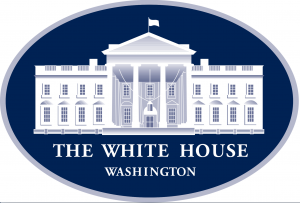 The White House recently released a blog celebrating the one year anniversary of the National Strategic Computing Initiative (NSCI), which was created to ensure continued U.S. leadership in high-performance computing (HPC). The blog details the important steps various Federal agencies have taken to create the foundation for a long-lasting and successful Federal initiative.
The White House recently released a blog celebrating the one year anniversary of the National Strategic Computing Initiative (NSCI), which was created to ensure continued U.S. leadership in high-performance computing (HPC). The blog details the important steps various Federal agencies have taken to create the foundation for a long-lasting and successful Federal initiative.
A few examples are summarized below. See the White House blog to learn more.
- The Department of Energy (DOE) has invested in a suite of efforts to continue developing the research base for “Post-Moore’s Law era” computing. These activities include convenings, such as a workshop on neuromorphic computing and a science roundtable with representatives from national laboratories and universities on quantum-based sensors; release of a request for proposals on machine learning research; and creation of strategic partnerships with the private sector to establish testbeds for Post-Moore’s Law computing systems in energy-efficient machines that mimic the brain’s abilities (including a D-Wave 2X system deployed at Los Alamos National Laboratory and a 4 billion synapse neuromorphic system hosted at Lawrence Livermore National Laboratory).
- The National Science Foundation (NSF) has issued the Energy-Efficient Computing: from Devices to Architectures (E2CDA) program solicitation with the private sector to support new research to minimize the energy impacts of processing, storing, and moving data within future computing systems.
- The Department of Defense (DOD) has initiated the Quantum Science and Engineering Program in the Office of the Assistant Secretary of Defense for Research and Engineering, focused on accelerating critical technologies for quantum networks and sensors that enable capabilities impossible to achieve with classical systems over the next three years.
- The National Institute of Standards and Technology (NIST) has announced the HPC Security Workshop, to take place in Fall 2016, to identify security priorities and principles that should be incorporated into NSCI and bring together stakeholders from industry, academia, and Government, and to identify gaps that should be addressed.
In the fall of last year, as part of the rollout of the NSCI, the White House announced their Nanotechnology-inspired grand challenge to develop transformational computing capabilities by combining innovations in multiple scientific disciplines. Federal agencies have just released a white paper describing their interagency vision for the emerging and innovative solutions needed to realize the Nanotechnology-Inspired Grand Challenge for Future Computing.
Related, the Computing Community Consoritum (CCC) is holding a Nanotechnology-inspired Information Processing Systems of the Future workshop at the end of August. It will bring leading researchers from the areas of computing, neuroscience, systems, architecture, integrated circuits, and nanoscience, together to think broadly about ideas for designing information processing platforms of the future on beyond CMOS nanoscale technologies. See the workshop website to learn more.









